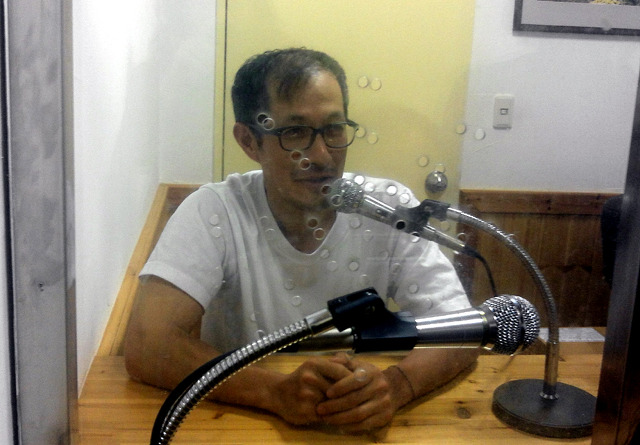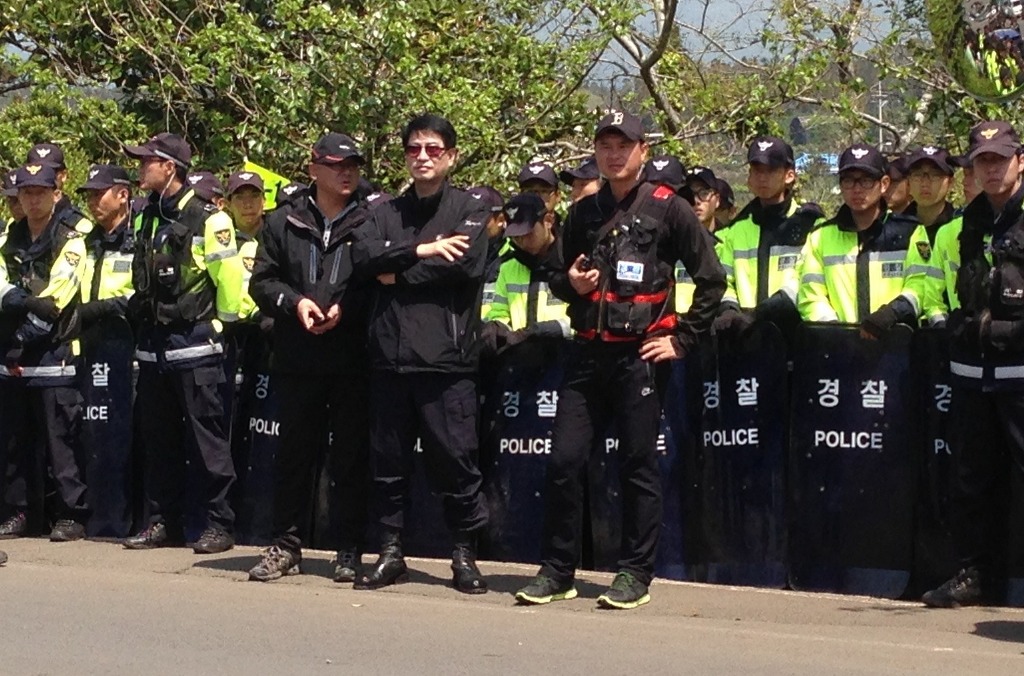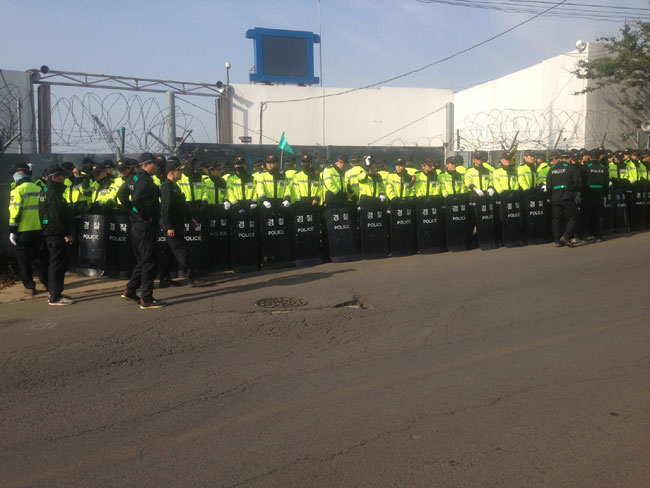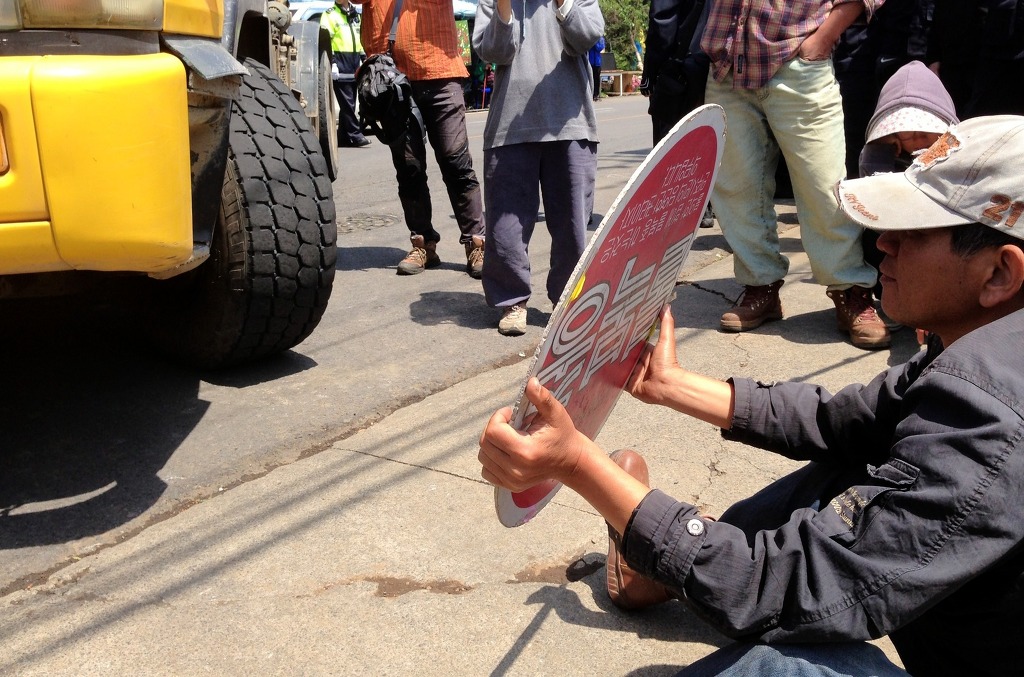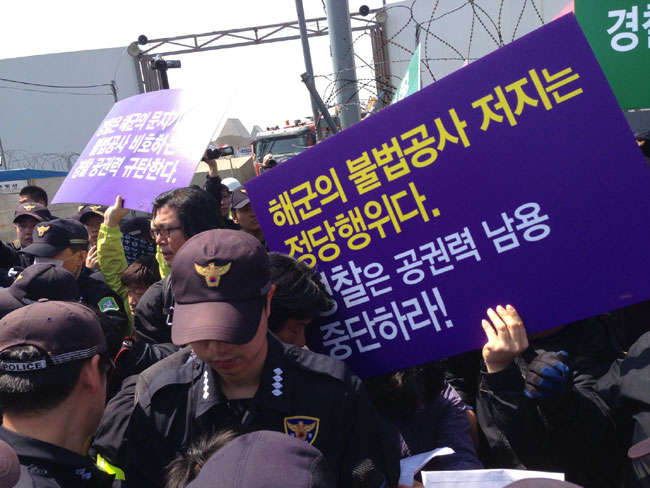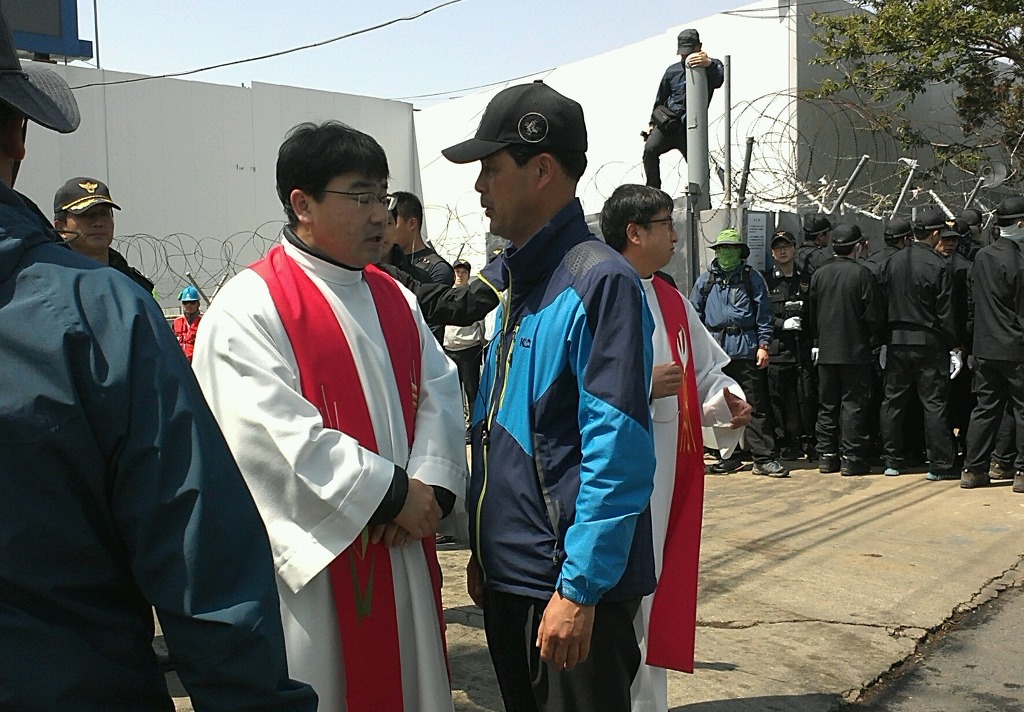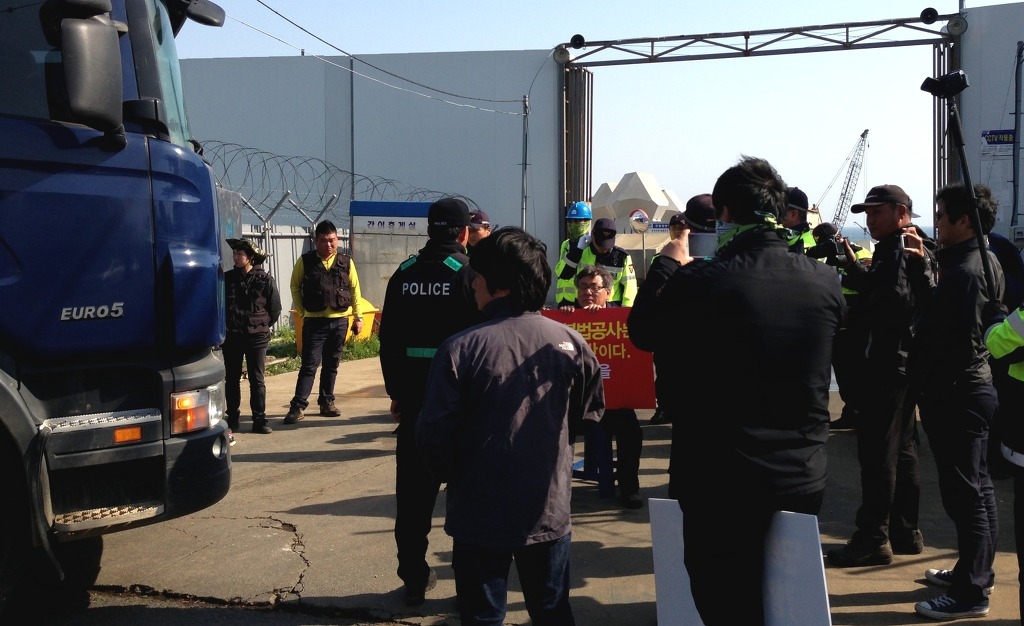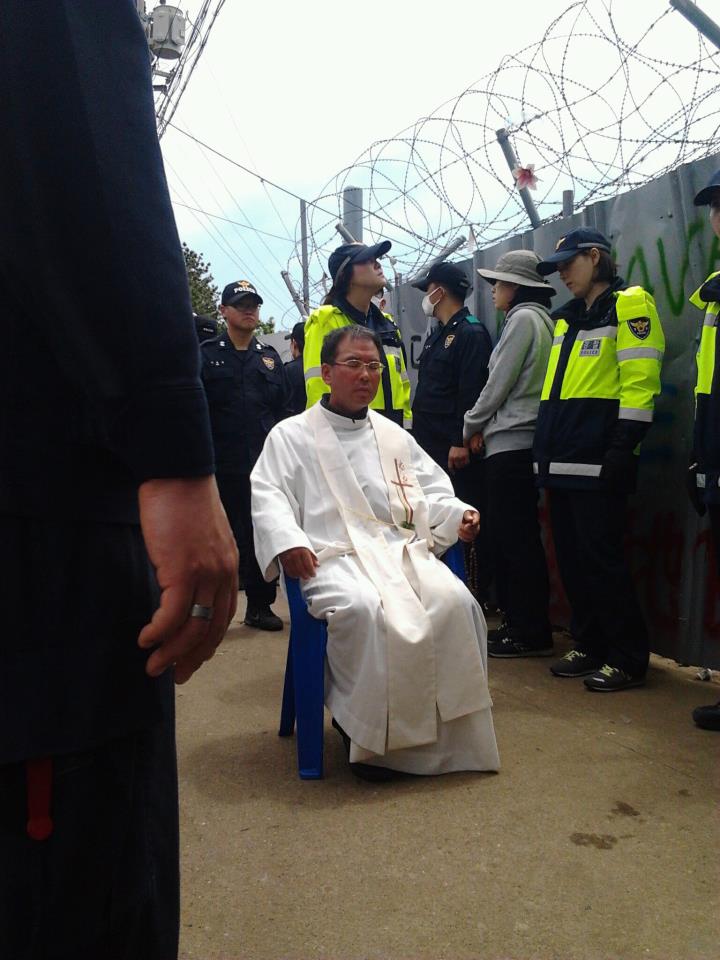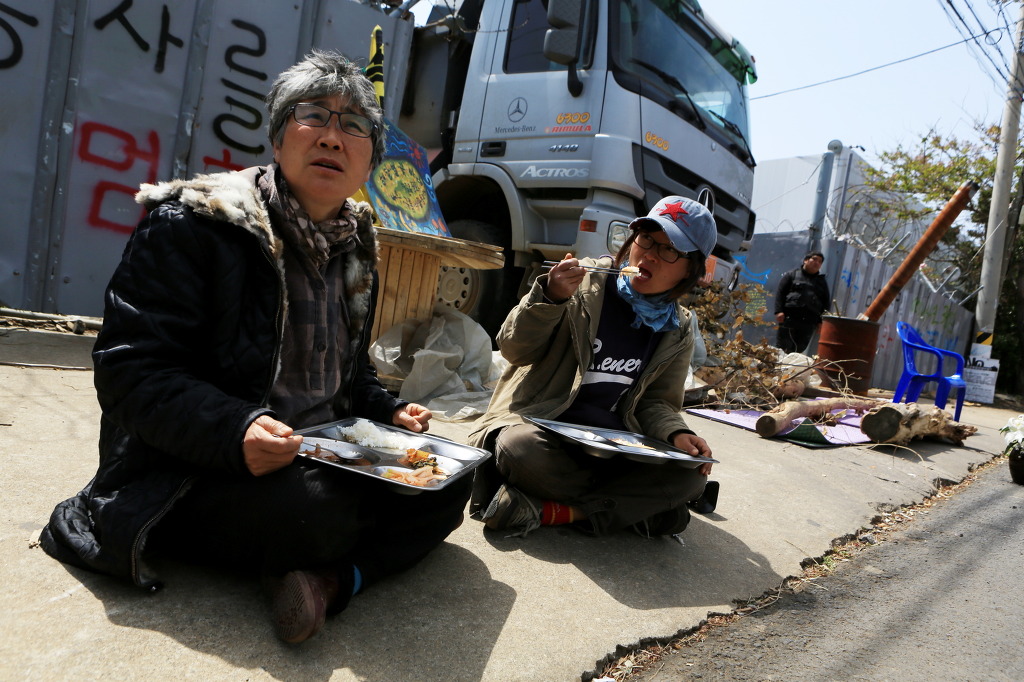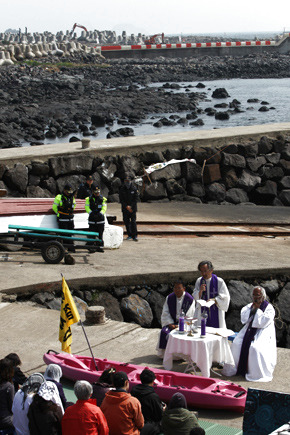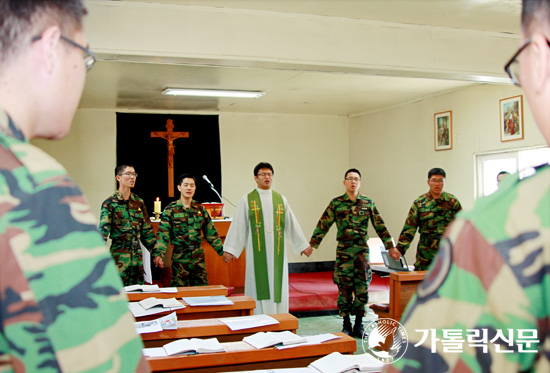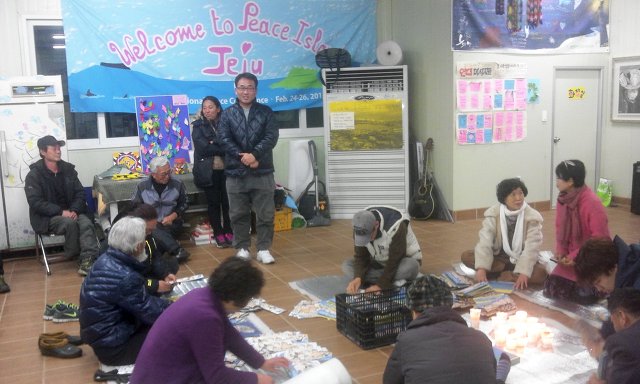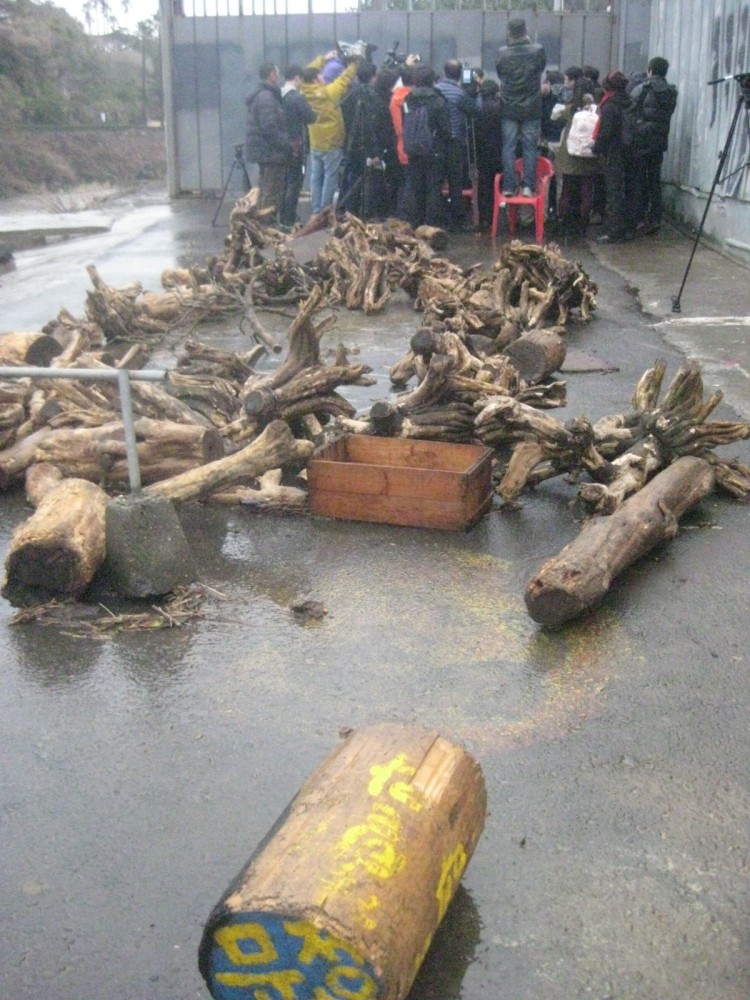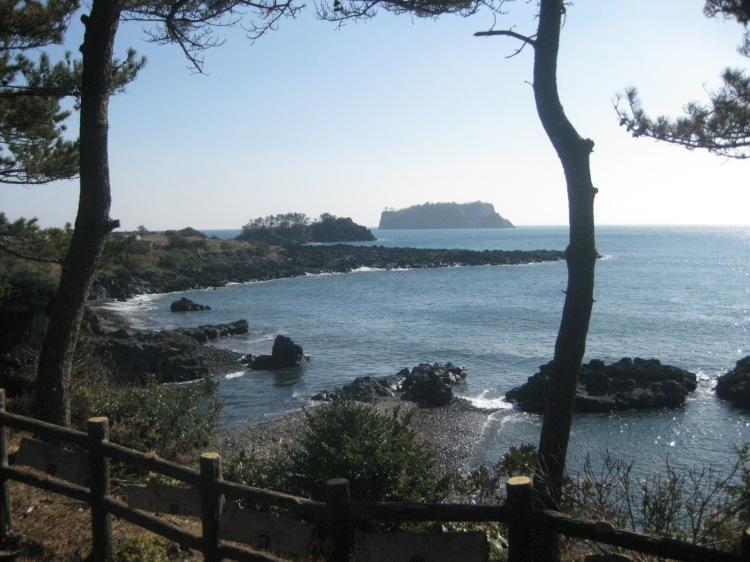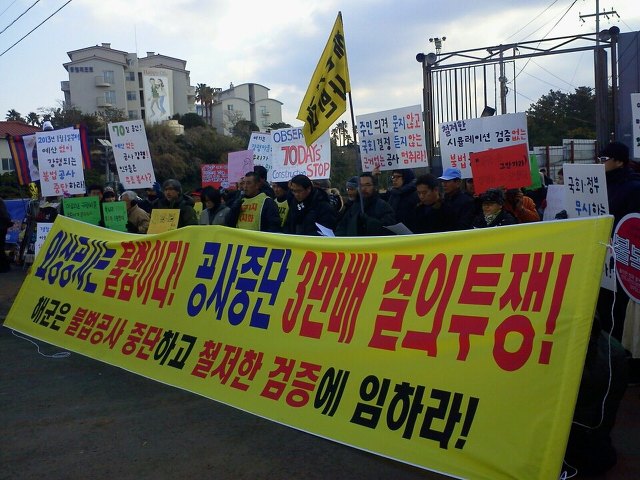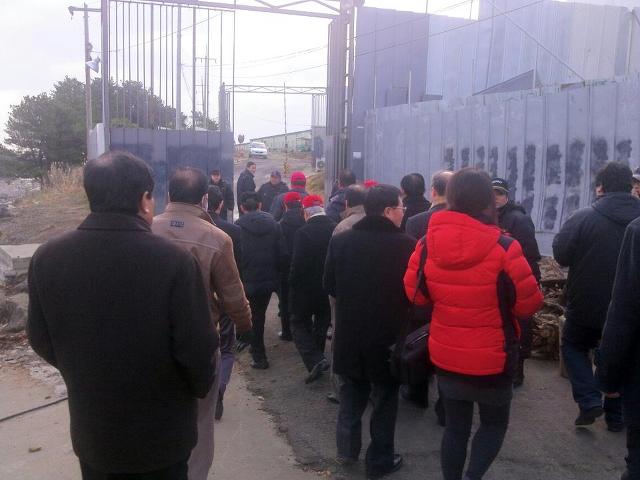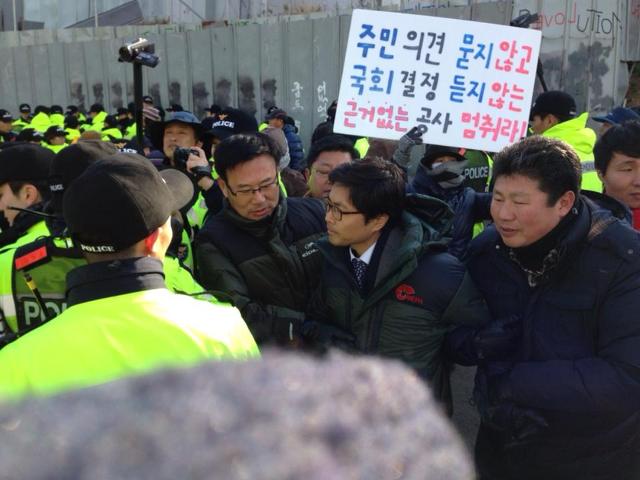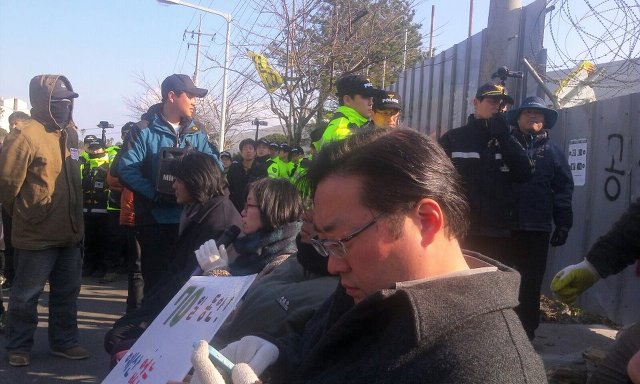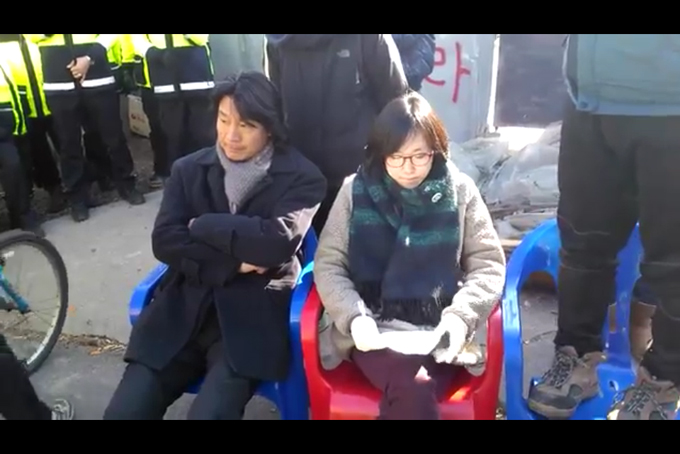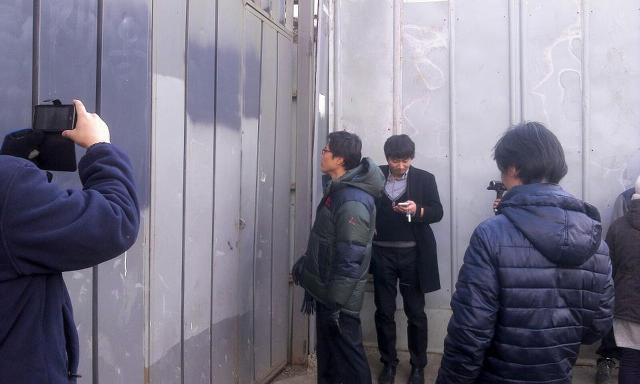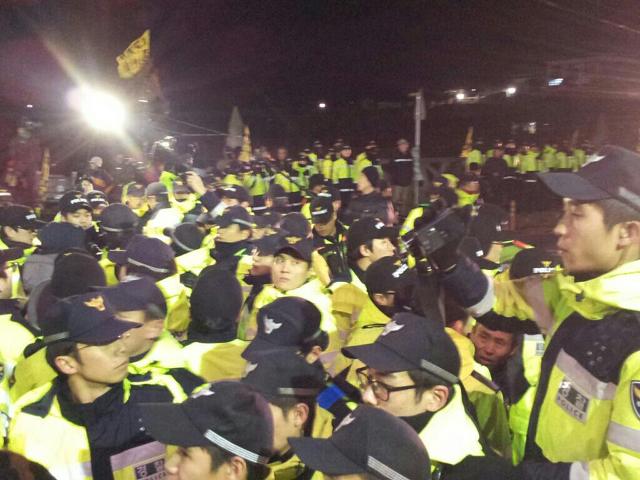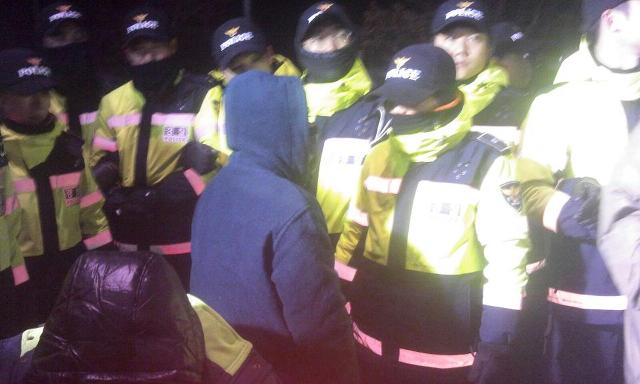1. Mr. Lee Jong-Hwa, a poet and peace activist, is to be imprisoned.
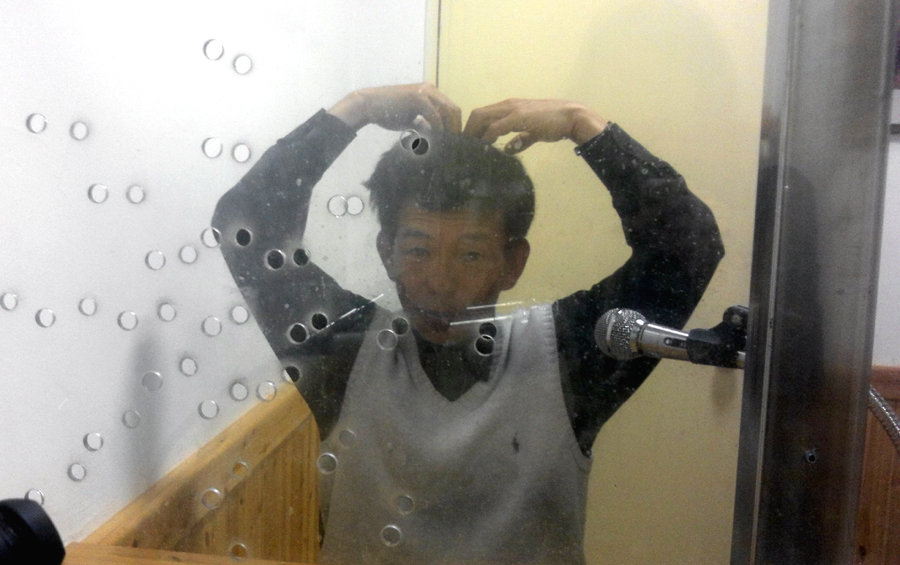
Mr. Lee Jong-Hwa is a poet, writer and peace activist with a good-nature smile, lots of humor and tear. He is the poet who loves travel but now he is to be jailed. The first book he asked people in the police station where he is currently held was a Korean and English language dictionaries.
He was arrested on April 28, Sunday, got the arrest warrant from the court on April 30.
He would be the 4th prisoner this year after Yang Yoon-Mo (arrested directly from the court on Feb. 1), Mr. Park Sung-Soo (volunteered to be jailed instead paying fines on March 25. He was released on April 1) and Mr. Kim Young-Jae (arrested on April 12).
He would be also the 21st prisoner in relation to the naval base. The total numbers of imprisonment are more than that as several people have been repeated jailed: For example, Yang Yoon-Mo.
Mr. Lee Jong-Hwa is told to be moved to the Jeju Prison on Friday, May 3.
According to an activist who met him in the Custody room of the Dongbu Police Station where he is currently held on May 1, He expressed his strong will saying that, “I want neither review of legality for confinement nor bail. Mine was a just protest to illegal construction (destruction), as I am a member of environment group. My 100 bows were what I could do against unjust state power. In my own way, I will prepare for trials, while reading and writing.”
He explained the situation of his arrest on April 28:
“I had no intention to be arrested on the day. However, I sat in front of a gate to protest to police ravage on Catholic mass and 100 bows. I was also protesting to the new Seogwipo Police Station chief who was haughty enough to say, “shot them [with harmful fire extinguishers].” I was to carry on 100 bows, the police interrupted me. So I sat on in protest. When a mass started, I became to naturally join the mass but the mass was also interrupted, too.”
It was his 6th arrest. Some people suspect that he had been targeted by the police, like Kim Young-Jae, since there was something that was not easily understandable when he was arrested: The truck seemed to intentionally move behind him as if he is clearly doing so called ‘obstruction of business,’ some people have pointed it out.
Videos by Leejesu
Mr. Lee Jong-Hwa’s wish to remaining people in the field is that 100 bows should be continuously carried on:
“The 100 bows in Gangjeong were initiated by the group, Life and Peace Fellowship, mainly by the Buddhist leaders like Dobup. I am a Catholic devotee. However, I have spread the compact disks of 100 bows narrative to many places including workers’ protest sites. It is to build the space for union.”

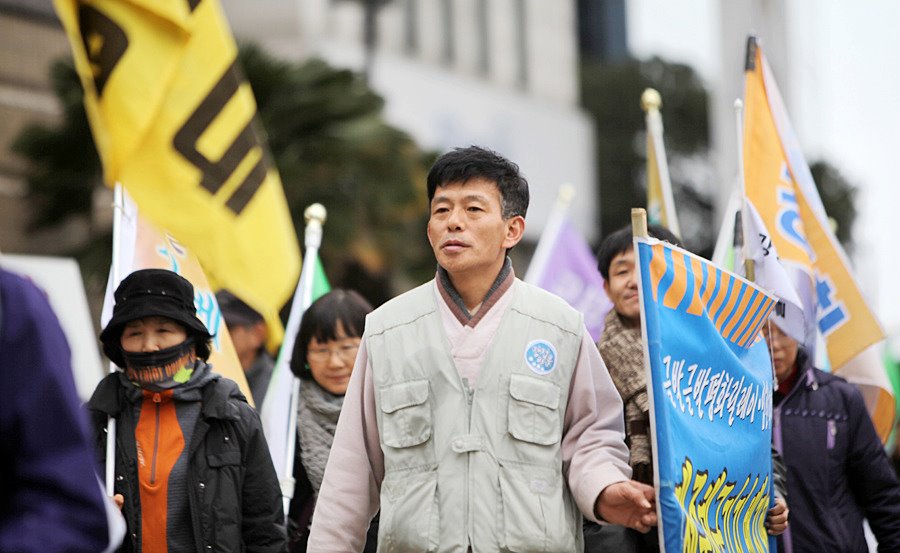
2. Update on Yang Yoon-Mo on his 90th day in prison
Yang Yoon-Mo (57, prisoner No. 301) who was directly arrested from the appeal court met his 90th prison day as of April 30. He got 1 year and six months actual sentence on the day. The Supreme court dismissed his case on April 26, confirming the unjust decision of appeal court.
As he has already lived in prison for two months(2011), 42 days(2012), and three months(as of April, 2013), he left about 1 year.
Here are his words on the final court decision on the dismissal of his case:
“ I think that the judges did not consider enough as they see the political situation as security state. Didn’t they simply dismiss my case, considering it as a kind of security case? I considered re-final appeal. But I knew there are not enough lawyer force [for the struggle] so I didn’t.
I criticize unilateral legal application that drives struggle opposing the naval base as security case. However the essence of the event comes from the corrupt state and government officers.
In my case, it is a resistance to improper legal procedures. It is a protest to the government officers robbing residents’ properties and depriving the people’s basic right and right to happiness. It is wrong that they applied crime to me. Their investigation way is to presuppose that I am a criminal. I will file for an appeal to Constitution.”
He will start to eat rice from May 1, after the recovering period with rice gruel since the end of 52 days’ fast on March 24.
Regarding the case of Yang Yoon-Mo, you may refer to UN Special Rapporteurs’ joint allegation letter to South Korean government on human rights violations in Gangjeong, Jeju.

3. Mr. Kim Young-Jae’s prison letter on April 25.
As of April 30, Mr. Kim Young-Jae (41, prison No. 435) got his 19th day in prison. In his April 25 letter to his senior in the village, he wrote as the below. These are translated excerpts:
I guess that many people were embarrassed by my arrest and imprisonment. However I am fine, different from your concern about me.
It is because I have been preparing for this, expecting my imprisonment long time ago.
During the investigation process, I felt that they had really decided their mind to arrest me. That is why I am more concerning about the peace keepers in Gangjeong.
I strongly feel that they want to arrest and imprison peacekeepers, so that they remove the power for the opposition movement against the Jeju naval base construction. Please particularly heed them.
When I was in the field in Gangjeong, I could not see very well. However, a little distant from it, I become to realize the things that I could not think before.
I become to see how this opposition movement against the Jeju naval base has continuity and meaning in the history of democracy, peace, and unification movements that have been heartbreaking and continuous for tens of years in Korea; and how I am and which position I stand on in those movements. It is becoming really precious time. [..]
Even though I am confined in a small single room, my heart is freer and happier than any other time.
There could be no regret since I have acted according to my consciousness and faith.
Tomorrow (April 26), there is a trial on the case of climbing up to the caisson dock in Hwasoon on last September 6. (* Mr. Kim Young-Jae was one of the five activists on the day)
I will see welcome faces. I wait for tomorrow.
Please tell all the peace keepers that I miss them so much. Please tell them not to be shrunken, not to be exhausted but fight with happiness.
P.S. Please say my special hello to the village uncles. I love them.”

4. The military wielding violence to civilians are not punished while the civilians are.
Nine villagers and peace activists got the court decision of probation on April 30. They have been charged of obstruction of business etc. when they entered into naval base construction area in protest of the navy’s violence on Dr. Song Kang-Ho on June 20, 2011.
On the day. Dr. Song Kang-Ho and some people climbed up to a construction barge on the Gangjeong Sea in protest to illegal destruction without restoration of damaged silt protectors. At the time, Dr. Song was hit by the navy personnel during the process.
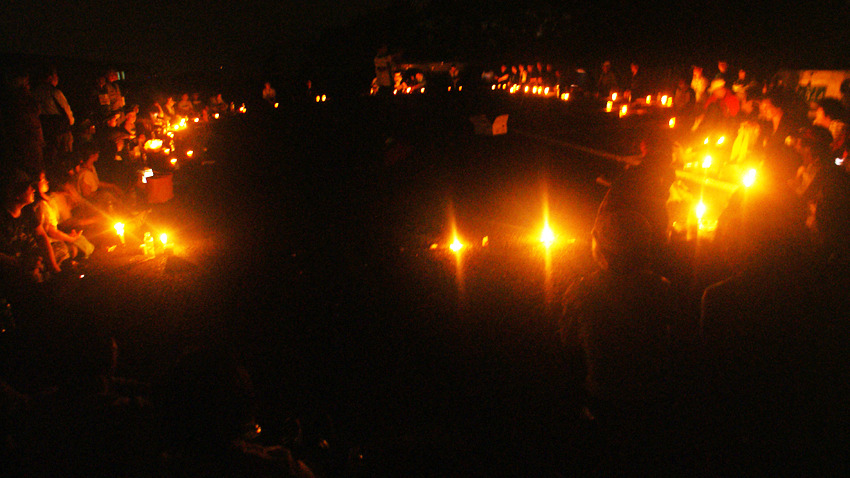
The criminal department of the Jeju District Court sentenced three people with six months’ imprisonment but two years’ probation while six people, with four months imprisonment but 1 year probation respectively.
Prof. Shin Yong-In, a law Professor of the Jeju University was infuriated to hear the result of court decision to say that:
“Is it persuasive by common sense that a subject who hit the other is are not punished but the people who protest to it are rather punished?
Furthermore, the subject is the soldier(navy). Military personnel’s violence on civilian is prohibited even during the war time. It is clearly a criminal activity. Does it make sense that the soldier who hit the civilian is never punished but the people who protest to it are rather punished?
Video by Cho Sung-Bong (source): Dr. Song is hit by the navy on June 20, 2011.

